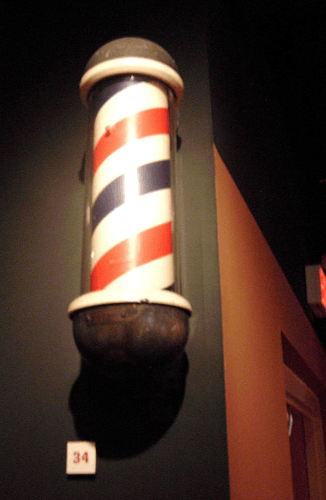AUSTIN, Texas — A federal judge in Austin has ruled that Texas regulations that prohibited African-style hair braiders from teaching their skills unless they complied with all the requirements of barber schools are unconstitutional under the Fourteenth Amendment’s due process protections. The case is being hailed as a victory by small government advocates and members of the African American community who view hair braiding as a vital form of art and culture.
The opinion, issued late Tuesday, is the latest development in a nearly two decade legal fight that began in 1995, when government regulators told Iris Brantley that she needed to have an occupational license for her African hair braiding business just like a barber, even though she did not handle or use on her clients many of the chemicals or implements that a barber would. In 1997, officials raided Brantley’s business and hauled her off in handcuffs for not having that required license.
Brantley is viewed as one of the nation’s top experts on African hair braiding techniques and styles, and counts celebrities like singer Erykah Badu among her clients. Brantley fought to change the law, and a 2007 bill did make it possible for her to continue doing business, but made in nearly impossible to teach her skills to any students.
According to a release from the Institute for Justice (IJ), which provided legal representation to Brantley, the Texas statute required a hair braiding school to operate as a barber college, including providing at least 2,000 square feet, at least ten reclining barber chairs — which hair braiders do not use — and at least five sinks, even though state law prohibits hair braiders from providing services that would use sinks.
All in all, the Texas law technically allowed hair braiding to be taught through a 35 hour braiding curriculum, but these requirements made it practically impossible and commercially unfeasible to do so, argued Brantley in court. Judge Sam Sparks of the United States District Court for the Western District of Texas, Austin Division, agreed, stating that the government cannot force a business to do useless things as a condition of operating.
The Texas law “plainly does not serve consumer needs,” wrote Judge Sparks, pointing out that the state had issued zero individual hair braiders’ licenses. Brantley testified in an affidavit that many of her students had attended a 35 hour hair braiding program at a barber school, so they could qualify for a hair braiding license, but they would come to her because they had not learned how to “properly” braid hair at the barber school. Hair braiding and general barbering “are not fundamentally identical services,” wrote the judge, and there was no “rational connection” between the statute and an individual’s “fitness or capacity to engage in” hair braiding instruction. The law also did not “advance public health, public safety, or any other legitimate government interest,” and was therefore unconstitutional under the Fourteenth Amendment.
The Dallas Morning News interviewed a “joyous” Brantley at her salon after the judge’s ruling was released. “This is an art form. This is not just ‘doing hair,’” Brantley said. “I’m teaching culture — African culture, African identity.”
“This ruling is a resounding victory for Isis Brantley and entrepreneurs like her across Texas,” said Arif Panju, an attorney who worked on Brantley’s case. “It is unconstitutional to require people to do useless things. By doing so, Texas was not only preventing African hair braiding schools from even opening, but it was also violating the Fourteenth Amendment.”
In addition to Texas, IJ has represented hair braiding businesses in California, Utah, Arizona, Ohio, Minnesota, Mississippi, Washington State, and the District of Columbia, either winning court battles or successfully lobbying for legislative changes to the laws.
The Texas Department of Licensing and Regulation could appeal this ruling. Susan Stanford, a spokeswoman for the agency, told the Dallas Morning News that there had not yet been a decision about whether or not to appeal.
Follow Sarah Rumpf on Twitter @rumpfshaker.

COMMENTS
Please let us know if you're having issues with commenting.